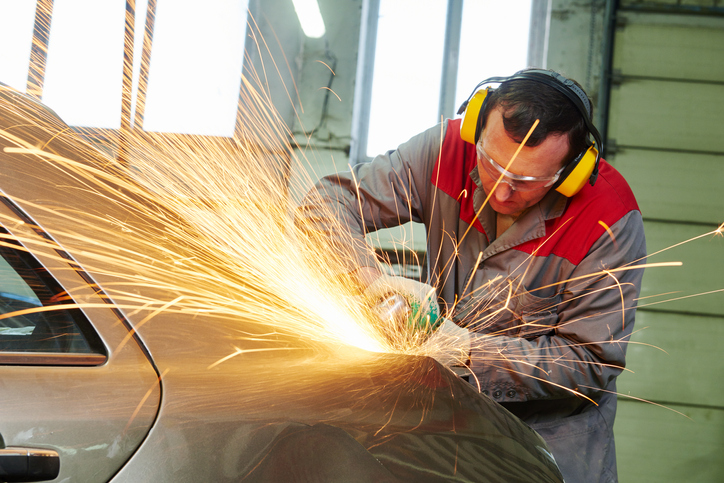3 Reasons to Consider Formal Training if You Want to Become an Auto Body Repair Technician

Auto body technicians have various tasks and responsibilities, typically working on damaged vehicles to assess and repair the damages. This means providing estimates for repair services and restoring the vehicle’s original state—realigning the frame and even replacing damaged body parts through welding and metal fabrication skills.
The job is perfect for those who love hands-on work, but it requires specialized knowledge and certain skill sets to complete. Auto body technicians can consider pursuing formal training in this field to be better prepared for the workforce, potentially earning higher wages.
Here, we introduce three key benefits of formal training to those interested in auto careers!
1. Gaining Valuable Knowledge in Highly Specialized Fields
The auto body industry is growing, with high demand for trained professionals in specialized fields. For instance, new careers are available for individuals interested in different aspects of the industry—ranging from painting prep technicians to collision repair trades. Even within repair trades, individuals can pursue further specializations, such as glass panel repairs (working on glass pinchwelds as well as replacing damaged windshield wipers, moldings, and clips).
Generally speaking, automotive body repair requires knowledge of new technologies and a deep understanding of vehicle construction. Here, formal training can provide auto body repair technicians with the proper know-how to complete these tasks effectively. This can include learning how to quickly and efficiently read diagrams and different manuals. By dedicating time to learning the ins and outs of auto body repair, students gain valuable knowledge that prepares them for a rewarding and successful future.

2. Developing Key Skills with the Guidance of Industry Professionals After Auto Body Technician Training
An auto body repair technician works on a vehicle’s exterior, performing both light and heavy repair services that can range from fixing dents and dings to replacing doors or a fender. In order to do so efficiently, providing the best customer service possible, technicians need to have a certain skill set. This includes critical thinking, effective communication, and some level of dexterity—with the ability to confidently use power tools and other equipment.
Through formal training, technicians can begin honing these skills and competencies. They can also learn how to use hot-air welding and metal cutting guns in addition to pneumatic hammers and plasma cutters—providing them with well-rounded experiences to perform well on the job.

3. Standing Out with Credentials and Up-to-Date Insider Knowledge
By taking auto body technician training, students can earn relevant experience that will help them stand out from other candidates when seeking work opportunities. Not only that, but some employers may prefer, or even require, applicants to have specific certification or credentials. In these cases, having formal auto body repair training will be a positive addition to your resume.
Formal auto body repair training leads to good pay and a stable career, providing students with up-to-date knowledge to remain on top of industry changes. As a result, students can expect to be prepared to work on a variety of vehicles and materials (including steel, aluminum, and metal alloys) that rely on new technology.
Are you interested in auto body technician careers?
Contact ATC Surrey for more information!

